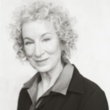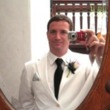Bunny: A Novel
(Libby/OverDrive eBook, Kindle)
Available Platforms
Description
More Details
Excerpt
Similar Titles From NoveList
Similar Authors From NoveList
Published Reviews
Booklist Review
In this wicked tale, MFA candidate Samantha rails against, but nonetheless engages in, the faux-gritty, privileged culture of her highly selective creative-writing program. Though her cohort is exclusively female, the group is far from picture-perfectly progressive. Samantha loathes the clique of sugary-white besties who relentlessly refer to one another as Bunny. That is, until they decide to include her in their weekly Smut Salon, a gathering shrouded in vanilla-scented mystery. What Samantha discovers the Bunnies are up to is beyond mortal comprehension: they've been sacrificing (via axe) actual rabbits and turning them into their ideal men, all in the name of creating art beyond their bedazzled, turquoise typewriters. A series of gory hangouts, and Samantha's Bunny indoctrination, ensues. Samantha is eventually saved from the cupcakey murder cult by a few helpful reminders that a world beyond the MFA program exists, and that she will very soon have to engage with it. Awad's (13 Ways of Looking at a Fat Girl, 2016) latest is sharp and utterly bonkers; think Heathers gone to grad school.--Courtney Eathorne Copyright 2019 Booklist
Publisher's Weekly Review
Awad's outstanding novel follows the highly addictive, darkly comedic tale of sardonic Samantha Mackey, a fiction MFA student at a top-tier New England school. There, four of her fellow writers are a ghoulish clique of women who cryptically refer to each other as "Bunny." To outsiders, the Bunnies come across as insipid with their colorful, patterned dresses and perfect hair. Samantha feels more grounded after her first year and after meeting Ava, who becomes her only friend, over the summer break. Samantha dreads the Bunnies' return upon learning the four of them are the only other participants in her writing workshop; once in class, they dismiss her work while praising their own. The trajectory of Samantha's life alters after she receives an unexpected invitation from the Bunnies to join them. Samantha's desire for acceptance leads her down a dangerous path into the Bunnies' rabbit hole, which begins with them drinking weird concoctions and reading erotic poetry together in sessions they call the "Smut Salon." Soon, though, Samantha begins to believe in the Bunnies' views, becomes unreliable as a narrator, and willingly participates in their increasingly twisted games. Awad (13 Ways of Looking at a Fat Girl) will have readers racing to find out how it all ends-and they won't be disappointed once the story reaches its wild finale. This is an enchanting and stunningly bizarre novel. Agent: Bill Clegg, the Clegg Agency. (June) © Copyright PWxyz, LLC. All rights reserved.
Library Journal Review
A small group of women bring utter creepiness into a grad school writing program. They call one another "Bunny" and come clothed in fluffy, childlike dresses, yet eventually their group mentality and clothing cannot hide their tremendously horrific alter egos. Another student in the program, the lonely, aloof Samantha, an anxious outsider, is dismayed to learn that an upcoming semester-long workshop will comprise just herself and the four Bunnies. She holds disdain for this "coven," but with time she is surreptitiously lured into their web of evil. From there, she experiences shape-shifters and hidden demons that step in and out of the picture. Why has she been invited into the group? Are the gory, cultlike events that take place real or imagined? Are hallucinogens being slipped into the cocktails at their gatherings? The result is a somewhat twisted fairy tale with many villains but no heroes. Or are there? VERDICT Intertwining a great deal of intrigue as she moves rapidly toward an enigmatic conclusion, Awad (13 Ways of Looking at a Fat Girl) uses lyrical descriptions and metaphors throughout that lend a bit of whimsy to an otherwise dark story that defies categorization. [See Prepub Aldert, 12/17/18.]--Susanne Wells, Indianapolis P.L.
Kirkus Book Review
A viciously funny bloodbath eviscerating the rarefied world of elite creative writing programs, Awad's latest may be the first (and only?) entry into the canon of MFA horror.Samantha Heather Mackey is the single outsider among her fiction cohort at Warren University, which is populated by Bunnies. "We call them Bunnies," she explains, "because that is what they call each other." The Bunnies are uniform in their Bunniness: rich and hyperfeminine and aggressively childlike, fawning over each other ("Can I just say I loved living in your lines and that's where I want to live now forever?"), wearing kitten-printed dresses, frequenting a cafe where all the food is miniature, from the mini cupcakes to the mini sweet potato fries. Samantha is, by definition, not a Bunny. But then a note appears in her student mailbox, sinister and saccharine at once: an invitation to the Bunnies' Smut Salon, one of their many Bunny customs from which Samantha has always been excluded, like "Touching Tuesdays" or "making little woodland creatures out of marzipan." And even though she despises the Bunnies and their cooing and their cloying girlishness and incomprehensible stories, she cannot resist the possibility of finally, maybe being invited into their sweet and terrifying club. Smut Salon, though, is tame compared to what the Bunnies call their "Workshop," which, they explain, is an "experimental" and "intertextual" project that "subverts the whole concept of genre," and also "the patriarchy of language," and also several other combinations of creative writing buzzwords. ("This is about the Body," a Bunny tells Samantha, upon deeming her ready to participate. "The Body performing in all its nuanced viscerality.") As Samantha falls deeper into their twee and terrifying worlddrifting from her only non-Bunny friend in the processAwad (13 Ways of Looking at a Fat Girl, 2016) gleefully pumps up the novel's nightmarish quality until the boundary between perception and reality has all but dissolved completely. It's clear that Awad is having fun herethe proof is in the goreand her delight is contagious.Wickedly sharp, if not altogether pleasant, it's a near-perfect realization of a singular visionand definitely not for everyone. Copyright Kirkus Reviews, used with permission.
Booklist Reviews
In this wicked tale, MFA candidate Samantha rails against, but nonetheless engages in, the faux-gritty, privileged culture of her highly selective creative-writing program. Though her cohort is exclusively female, the group is far from picture-perfectly progressive. Samantha loathes the clique of sugary-white besties who relentlessly refer to one another as "Bunny." That is, until they decide to include her in their weekly Smut Salon, a gathering shrouded in vanilla-scented mystery. What Samantha discovers the Bunnies are up to is beyond mortal comprehension: they've been sacrificing (via axe) actual rabbits and turning them into their ideal men, all in the name of creating art beyond their bedazzled, turquoise typewriters. A series of gory hangouts, and Samantha's Bunny indoctrination, ensues. Samantha is eventually saved from the cupcakey murder cult by a few helpful reminders that a world beyond the MFA program exists, and that she will very soon have to engage with it. Awad's (13 Ways of Looking at a Fat Girl, 2016) latest is sharp and utterly bonkers; think Heathers gone to grad school. Copyright 2019 Booklist Reviews.
Library Journal Reviews
Samantha Heather Mackey feels outflanked by a bunch of rich-girl students in her prestigious MFA program who call one another Bunny. Then the Bunnies invite her to join their twisted fun. Following the darkly sparkling 13 Ways of Looking at a Fat Girl, a Scotiabank Giller Prize finalist, LibraryReads pick, and more.
Copyright 2018 Library Journal.Library Journal Reviews
A small group of women bring utter creepiness into a grad school writing program. They call one another "Bunny" and come clothed in fluffy, childlike dresses, yet eventually their group mentality and clothing cannot hide their tremendously horrific alter egos. Another student in the program, the lonely, aloof Samantha, an anxious outsider, is dismayed to learn that an upcoming semester-long workshop will comprise just herself and the four Bunnies. She holds disdain for this "coven," but with time she is surreptitiously lured into their web of evil. From there, she experiences shape-shifters and hidden demons that step in and out of the picture. Why has she been invited into the group? Are the gory, cultlike events that take place real or imagined? Are hallucinogens being slipped into the cocktails at their gatherings? The result is a somewhat twisted fairy tale with many villains but no heroes. Or are there? VERDICT Intertwining a great deal of intrigue as she moves rapidly toward an enigmatic conclusion, Awad (13 Ways of Looking at a Fat Girl) uses lyrical descriptions and metaphors throughout that lend a bit of whimsy to an otherwise dark story that defies categorization. [See Prepub Aldert, 12/17/18.]—Susanne Wells, Indianapolis P.L.
Copyright 2019 Library Journal.Publishers Weekly Reviews
Awad's outstanding novel follows the highly addictive, darkly comedic tale of sardonic Samantha Mackey, a fiction MFA student at a top-tier New England school. There, four of her fellow writers are a ghoulish clique of women who cryptically refer to each other as "Bunny." To outsiders, the Bunnies come across as insipid with their colorful, patterned dresses and perfect hair. Samantha feels more grounded after her first year and after meeting Ava, who becomes her only friend, over the summer break. Samantha dreads the Bunnies' return upon learning the four of them are the only other participants in her writing workshop; once in class, they dismiss her work while praising their own. The trajectory of Samantha's life alters after she receives an unexpected invitation from the Bunnies to join them. Samantha's desire for acceptance leads her down a dangerous path into the Bunnies' rabbit hole, which begins with them drinking weird concoctions and reading erotic poetry together in sessions they call the "Smut Salon." Soon, though, Samantha begins to believe in the Bunnies' views, becomes unreliable as a narrator, and willingly participates in their increasingly twisted games. Awad (13 Ways of Looking at a Fat Girl) will have readers racing to find out how it all ends—and they won't be disappointed once the story reaches its wild finale. This is an enchanting and stunningly bizarre novel. Agent: Bill Clegg, the Clegg Agency. (June)
Copyright 2019 Publishers Weekly.Reviews from GoodReads
Citations
Awad, M. (2019). Bunny: A Novel . Penguin Publishing Group.
Chicago / Turabian - Author Date Citation, 17th Edition (style guide)Awad, Mona. 2019. Bunny: A Novel. Penguin Publishing Group.
Chicago / Turabian - Humanities (Notes and Bibliography) Citation, 17th Edition (style guide)Awad, Mona. Bunny: A Novel Penguin Publishing Group, 2019.
Harvard Citation (style guide)Awad, M. (2019). Bunny: a novel. Penguin Publishing Group.
MLA Citation, 9th Edition (style guide)Awad, Mona. Bunny: A Novel Penguin Publishing Group, 2019.
Copy Details
| Collection | Owned | Available | Number of Holds |
|---|---|---|---|
| Libby | 8 | 0 | 35 |

































